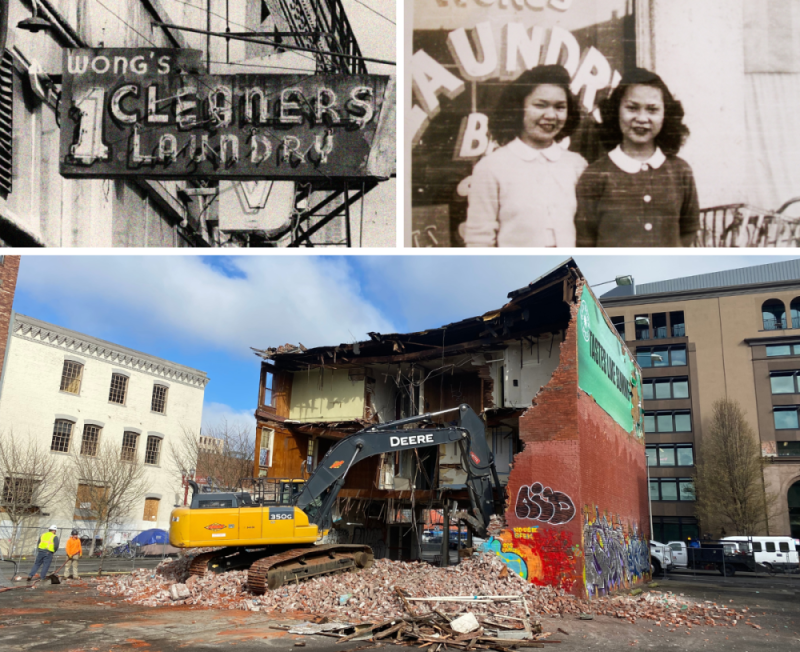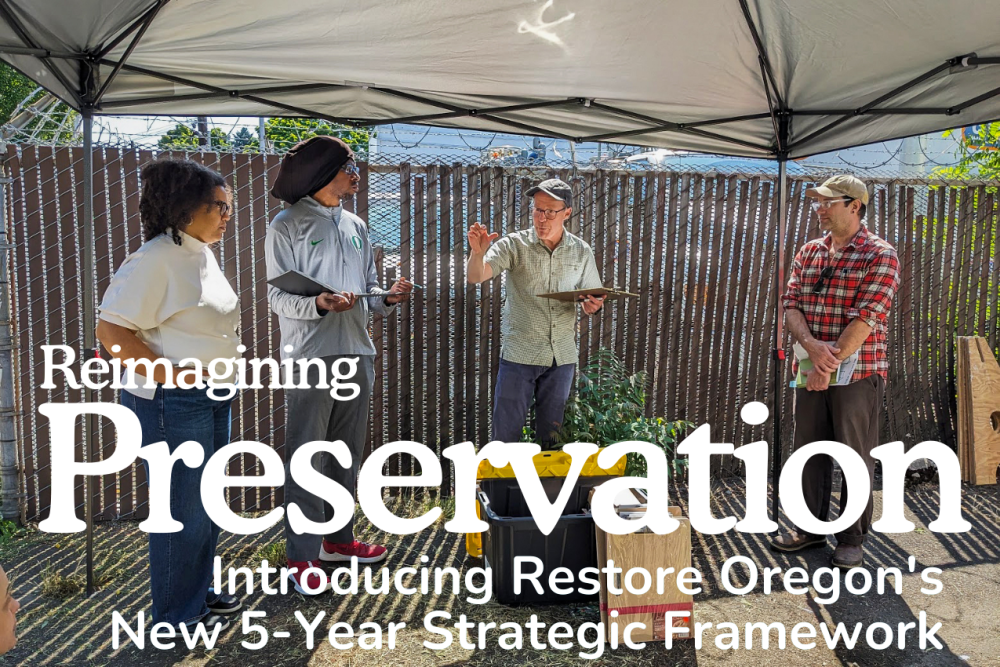50 Years Ago Oregon was a Preservation Innovator.
We Believe it Can be Again.
Restore Oregon recognizes that the time is now to boldly move beyond traditional approaches to historic preservation to create an inclusive, equitable, and diverse preservation community in Oregon. Our Board of Directors and staff have worked together over the past year to create a new, five-year Strategic Framework. With that framework now in place, we have started to implement this bold, new vision for Oregon.

Pictured above clockwise from top left: The Wong Laundry Building, 1908 and in the early 1940s, Portland. The Yamaguchi Hotel demolition, Portland. Photo courtesy of the Japanese American Museum of Oregon.
As early as 2014, Restore Oregon began to shift toward telling the full Oregon story, beginning with listing the Wong Laundry Building as one of Oregon’s Most Endangered Places. In 2016, we presented the Society Hotel with a DeMuro Award to celebrate both the preservation of a historic structure in the Portland New Chinatown/Japantown Historic District and efforts to preserve and share the Chinese-American history and artifacts discovered as a result of that project. Another story central to the Portland New Chinatown/Japantown Historic District is the Yamaguchi Hotel. Restore Oregon worked with the Japanese American Museum of Oregon to tell the full story of the Yamaguchi Hotel in an attempt to prevent its unnecessary demolition.
In 2019, Restore Oregon commissioned a study by independent research firm ECONorthwest to examine the carbon impact of demolition vs. reuse of existing buildings. Later that year, we added the Billy Webb Elks Lodge and the Mayo House, both significant to Portland's Black community, to Oregon’s Most Endangered Places list. More recently in the Spring of 2023, as part of our effort to tell an inclusive story of Oregon's past, Restore Oregon partnered with the University of Oregon (UO) Just Futures Institute, Oregon Black Pioneers, Moreland Resource Consulting, Clatsop Community College Historic Preservation Program, and the Architectural Heritage Center, to launch the Albina Preservation Initiative–a step forward to make preservation work better for Black communities and a transformative shift for Oregon.
Fueled by calls for racial justice, the ongoing and imminent threat of climate change, and the immediate need for more housing in Oregon, Restore Oregon built upon the past decade of work by ramping up efforts to intentionally include diversity/equity/inclusion, climate action, and housing generation in all of the work that we do, from programs to outreach to advocacy, as we firmly believe that historic preservation and reuse are necessary steps in steering Oregon toward a vibrant, sustainable, and equitable future.


